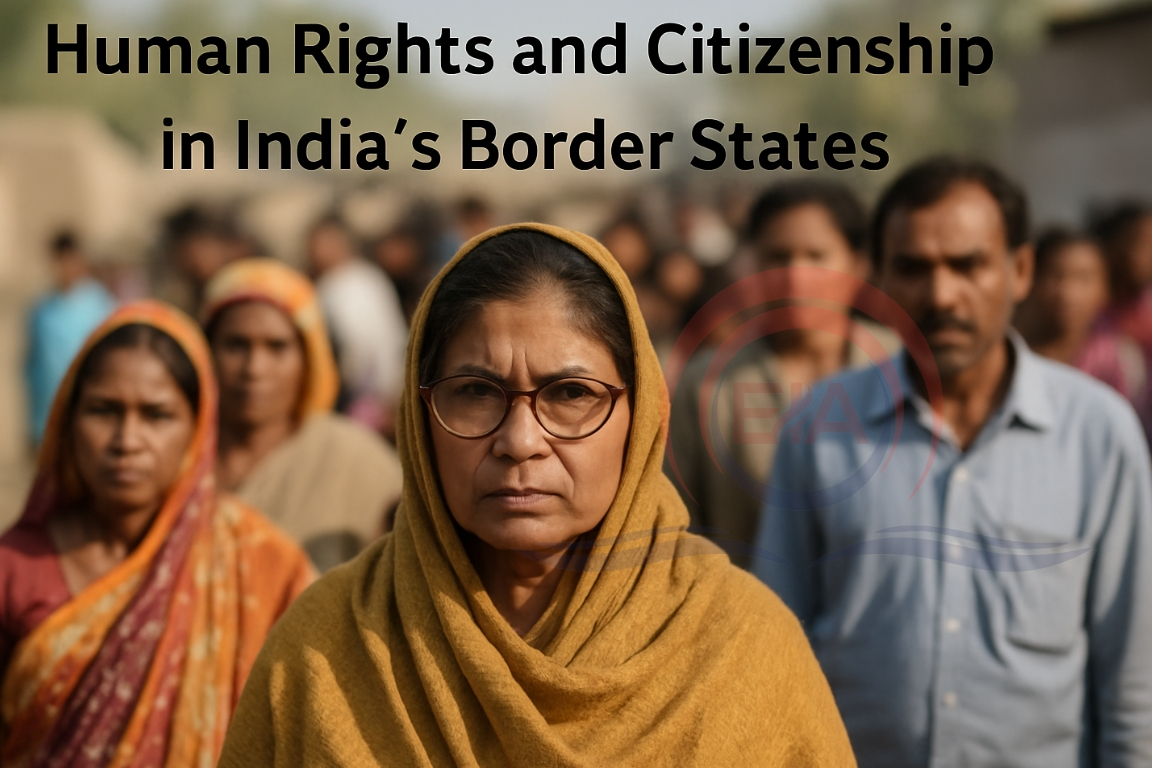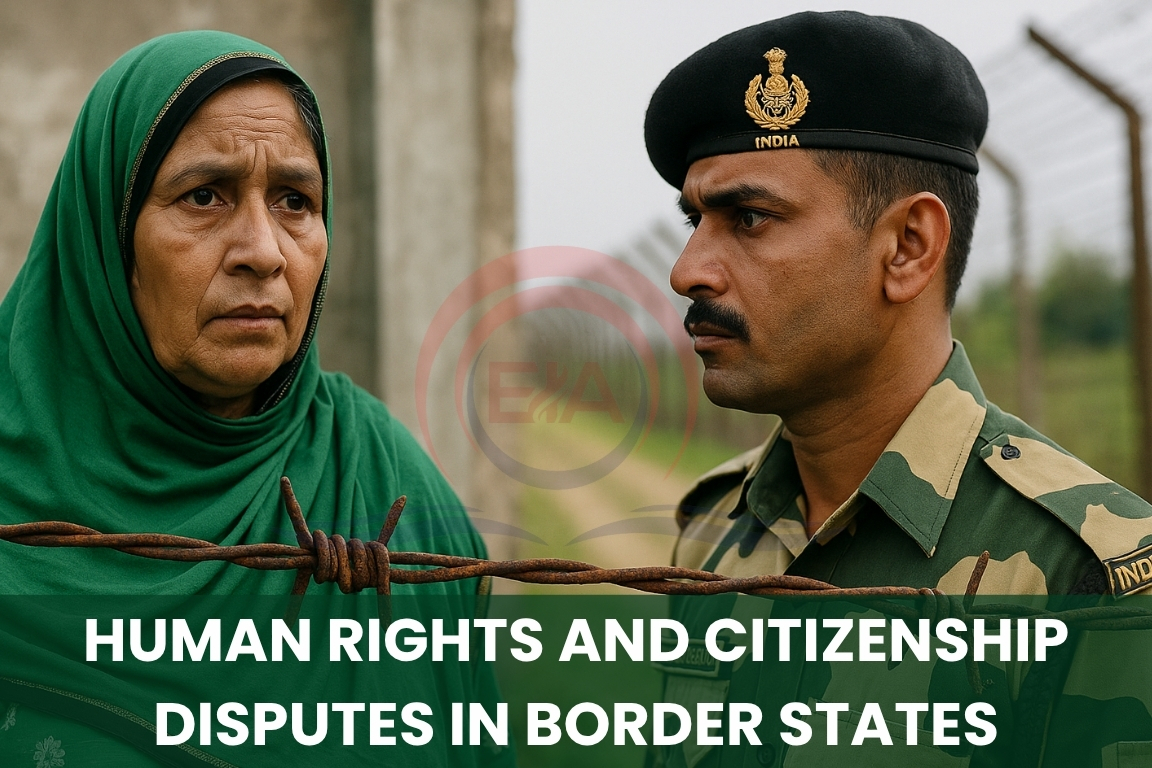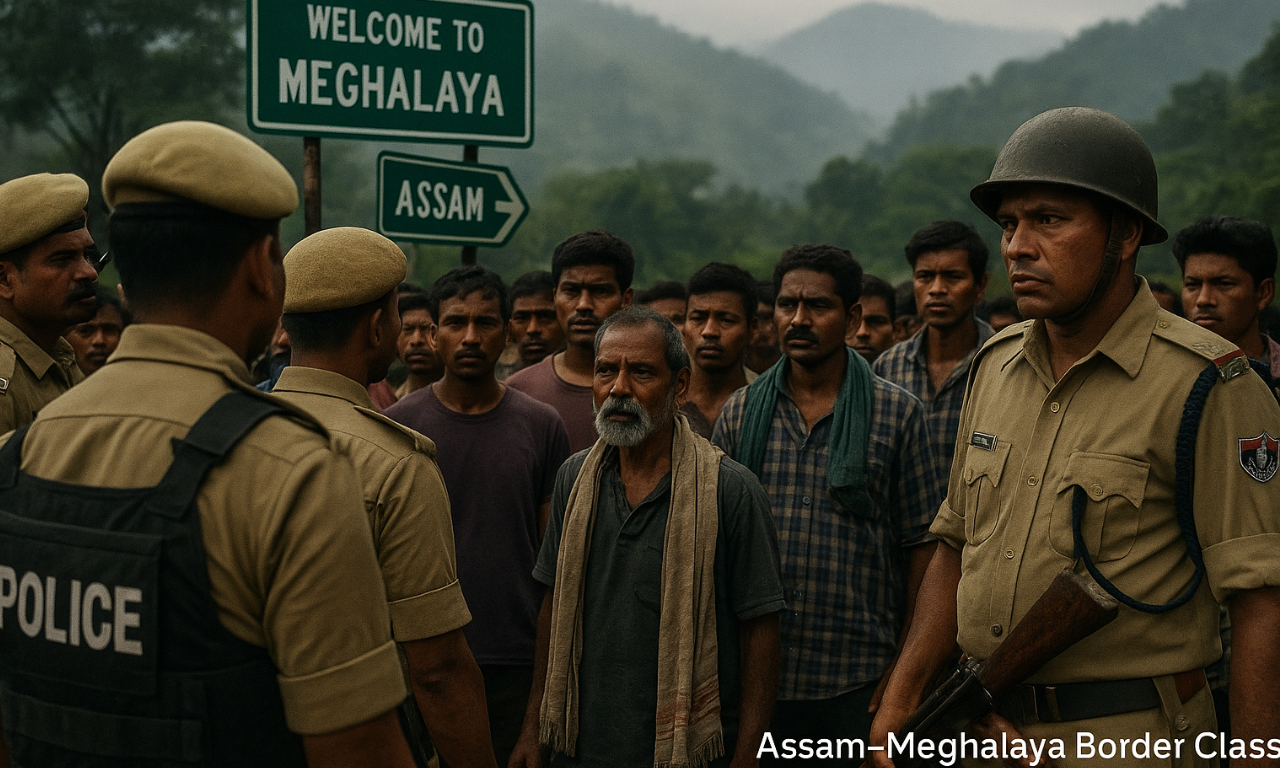The Supreme Court recently stayed the deportation of a woman declared a foreigner in Assam, and the J&K High Court ordered the repatriation of a long-term Pakistani resident, highlighting ongoing concerns about the treatment of citizenship and human rights in India’s border states.
Cases Highlighted Assam Case – Jaynab Bibi:
- Declared a foreigner by the Foreigners’ Tribunal and Gauhati High Court despite her family living in Assam for generations.
- Supreme Court stayed her deportation and protected her from coercive action until the next hearing.
Jammu Case – Rakshanda Rashid:
- A Pakistani woman living in India for 38 years with her Indian husband and children.
- Deported amid post-terror attack action; J&K High Court directed the Centre to bring her back.
- Her citizenship application filed in 1996 remains unprocessed.
Legal and Constitutional Concerns
- Lack of Evidence: Courts have pointed out that many are wrongly suspected of being foreigners without solid proof.
- Supreme Court (2024): Suspicion cannot replace legal evidence in deciding nationality.
- Human Rights Violations: J&K High Court stressed that protecting human dignity is essential, even before the legal process concludes.
- Delayed Citizenship Process: Bureaucratic delays in citizenship applications, like in Ms. Rashid’s case, deny long-term residents their basic rights.

Broader Context
- from Afghanistan, Pakistan, and Bangladesh.
- Critics argue it discriminates based on religion and ignores genuine refugees from other communities.
- Political Rhetoric: Comments by some leaders intensify fear among minority groups and undocumented residents.
Conclusion:
Citizenship issues must be handled with fairness, legal safeguards, and respect for human dignity. Governments should ensure human rights are protected without waiting for judicial intervention.





